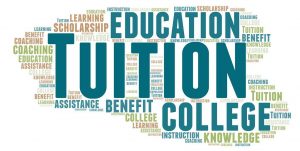
[123RF]
In Singapore, tuition is seen as a ‘necessity’ for students to do well. This has led to many parents sending their children to tuition from as young as preschool and continuing it until their children’s last days in the education system.
However, this has led to a major issue that students face: a heavy reliance on tuition. Why is it so bad? Let’s take a look.
Why Have Tuition?

[Flickr]
Many parents send their children for tuition lessons because they want them to get good grades for a promising future.
This is extremely helpful for struggling students because they get additional help and attention from their tuition teacher, especially if they take private tutoring.
Tutoring also focuses on the root cause of the problem through targeted questions and tasks that may not be provided in school.
Benefits of Tuition

[Depositphotos]
There are many other benefits for students to have tuition. For example:
1. Tuition helps students to create a solid foundation in their studies
2. It saves time from self-studying
3. Tutors can identify learning problems that teachers miss
4. Students get help with answering exam questions
5. It boosts students’ confidence
6. It offers students a safe environment to ask questions
All of these benefits lead to the raising of students’ grades since they get the support and personalised help that they need to patch up their weaknesses and gaps in learning.
When Does it Become Heavy Reliance?

[Vecteezy]
Although having tuition is beneficial to students’ academic performance, when it becomes excessive, students start to develop a dependence on it.
Here are some clear signs that students are relying too heavily on tuition:
1. When students can’t keep their grades up without tuition
2. When students are unable to learn and study on their own
3. When students cannot conduct self-directed learning
Why is it Bad to Rely Heavily on Tuition?

[Vecteezy]
Students face many disadvantages when they rely too much on tuition. One of the more
obvious reasons is that students start to use tuition as a ‘crutch’ and a ‘safety net’ for their learning.
But heavy reliance on tuition also has other negative impacts on students’ learning and development. For example:
1. Loss of self-directed learning
When students learn to rely on their tuition teachers to manage their learning, they soon lose the skill of self-directed learning – where students take charge of their learning process.
Unfortunately, this skill is one that they will need in the future when they enter the workforce because they need to be self-reliant.
2. Restricts curiosity
Excessive tuition might also lead to students being overly reliant on their tutors for information. This means that they might not engage in self-discovery, and it might also restrict their curiosity.
3. Causes students to not listen in school
Tuition lessons often cover school syllabus content after students are taught it in school to reinforce their learning. However, this has led to students not paying attention in school because they’ll learn it again in their tuition lessons.
This actually prevents students’ listening, critical thinking and problem-solving skills from developing since they’re entirely reliant on being spoon-fed by their tutors.
Conclusion

[Freepik]
‘Too much of a good thing is a bad thing’ applies to tuition. Tuition can be extremely helpful in boosting students’ academic performance.
However, if students start to rely too much on tuition to sustain their learning and grades, then it becomes detrimental to their development.
Tuition in Singapore – Statistics, Facts and Advice (2020)
Tutoring: A Comprehensive Guide to Meeting Your Academic Goals
